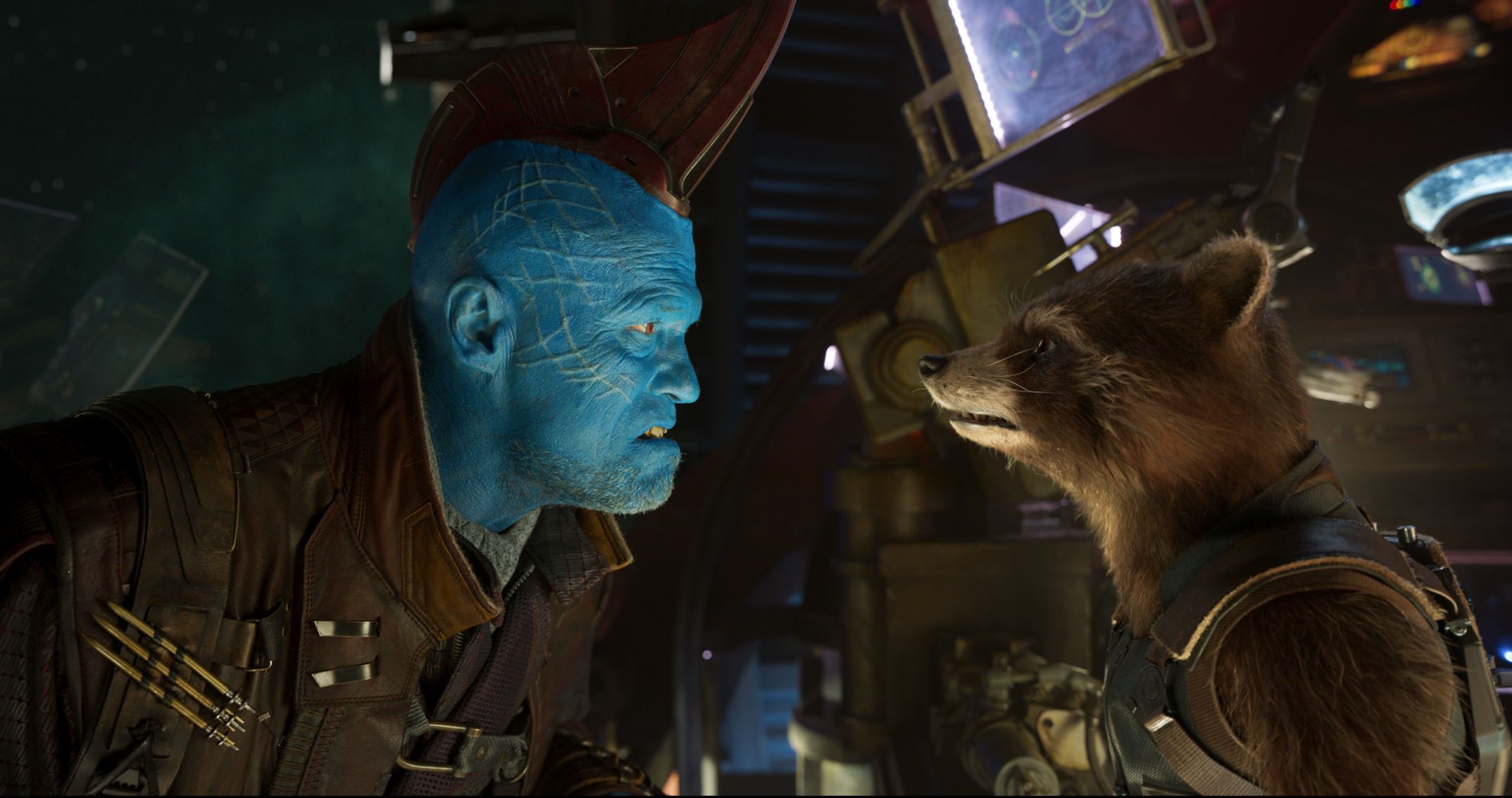How does Marvel Studios and
writer/director James Gunn follow up their idiosyncratic space-opera send up,
“Guardians of the Galaxy?” Despite its undeniable success, the pressure to live
up the ever-growing reputation of their 2014 blockbuster had be daunting,
considering the specific tone and aesthetic approach these creators allowed for
the project. I am happy to say that while
“Guardians of the Galaxy Vol: 2” doesn’t capture the same lightning in a bottle,
I-can’t-believe-they’re-getting-away-with-this quality of its predecessor, Gunn
still brings his subversive sensibilities to the table with enthusiasm.
After botching a trade deal with a
race of golden, elitist aliens called The Sovereign, the Guardians hightail it to
the other side of the galaxy to find safety. Peter Quill/Starlord (Chris
Pratt), Drax the Destroyer (Dave Bautista) and Gamora (Zoe Saldana) find refuge
on a heavenly planet manned by a glowing, bearded celestial named Ego (Kurt
Russell) who’s claiming to be Peter’s father.
Separated from the group, Rocket Raccoon (voiced by Bradley
Cooper) and the baby tree elemental Groot (voiced by Vin Diesel) are crash
landed on a forest planet with Gamora’s violent sister Nebula
(Karen Gillan), hiding from Peter’s old clan of space pirates led by
the vengeful Yandu (Michael Rooker).
Making things all the more complicated, the pirates are staging a
mutiny, believing that Yandu himself has been too soft on Peter’s betrayal.
Gunn’s love for the character’s is
evident throughout the plot, which, unlike a lot of Marvel’s on-screen
adaptations, is rooted in pathos. Every scene and set-piece advances a
character’s role in the story and has a overall goal towards supporting the
theme of outsiders looking to form new families. While there are plenty of
expensive special effects to gawk at and many visual gags and quips in the
dialog to laugh at, the whole thing is held together by Gunn’s strength in
character-driven, emotional storytelling. That said, the special effects are at
times overwhelmingly glossy, sometimes losing a true sense of tactility, and
the humor occasionally slips into try-hard territory.
While the previous film found it’s
humor in the on-screen interactions and the outlandish circumstances of the
plot, along with moments of sarcastic dialogue, this script feels a more
punched-up with a joke-per-page quota that has to be met. This expectation for
comedy leaves some quips and gags falling flat while other jokes and setups
feel more naturally integrated. Overall, the storytelling and the conviction of
the actors in their roles supports even the film’s weaker attempts at humor.
Grade: B+
Originally Published in the Idaho State Journal/May-2017
Listen to this week's episode of Jabber and the Drone to hear more conversation about "Guardians of the Galaxy Vol:2"



